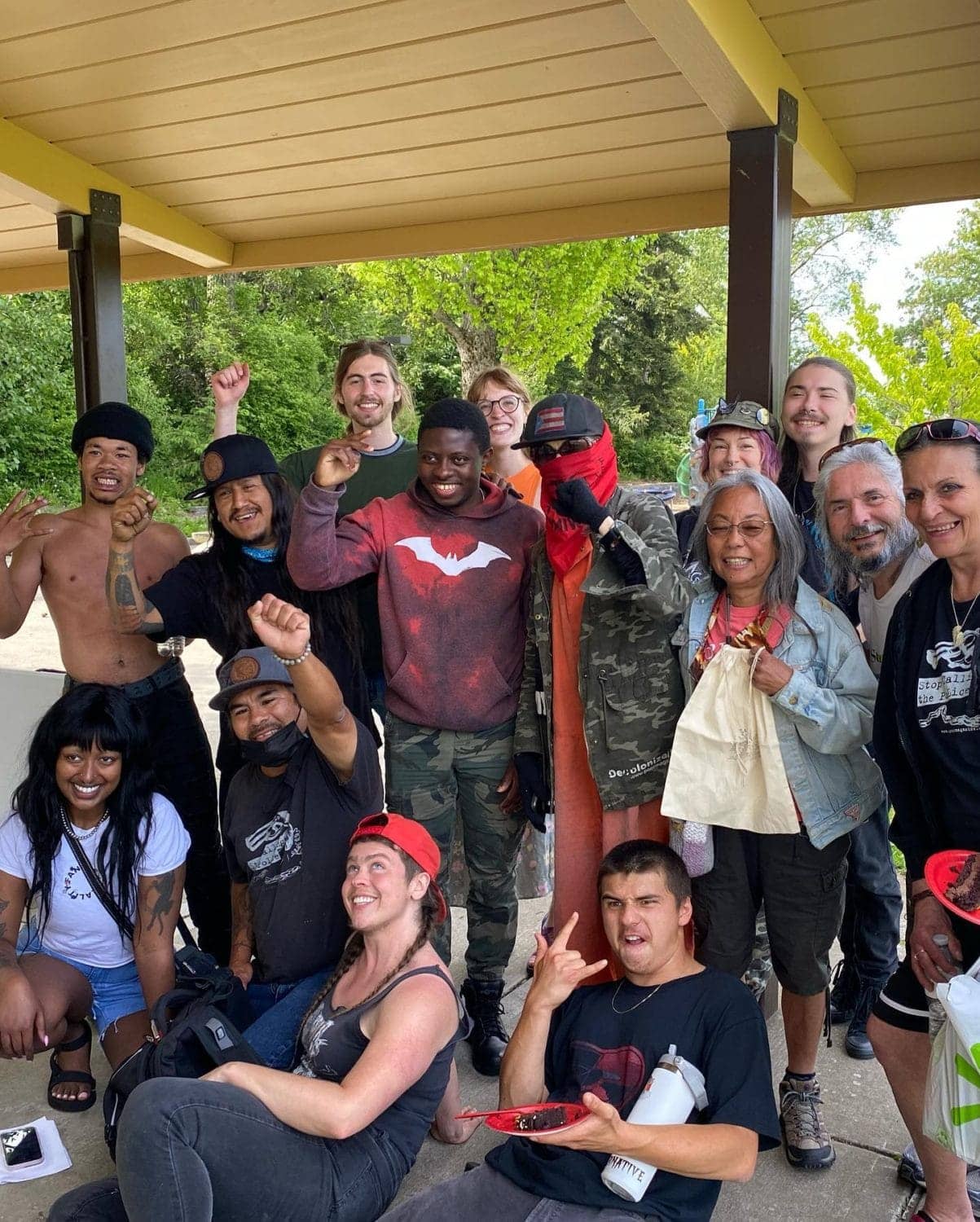
The terrifyingly racist herstory of so-called Bellingham, Wash., brings the medicine of homefulness
by Tiny Gray-Garcia, POOR Magazine
All the beautiful places settlers steal … To make their vacation homes real …
Sharp blue skies
Water lapping at rocks
powder clouds
stars up so high
in side a moonlit carpet sky
Thick moss blanketing mamatrees
Ain’t never seen trees like these …
Sails waving in with soft brushes of ocean breeze
Clear creeks massage
manicured feet
four-legged relatives
Carrying ancestors messages
Houses for one with yards for none
on top of sacred sites with stolen daughters and Suns
Mama Earth’s water squeezed from mama’s tit
lifted and CONsumed
Extracted for oil, gas with deadly drill bits
All the beautiful spaces that settlers steal
Let’s b real
After they’ve destroyed all they have
Search for new spaces
Leaving roads and towns
In rubble after they disCOVER something new to steal and
Tear down
This message from a poverty skola goes out to all the First Nations relatives cut and ripped from all over Mama Earth, but today focuses on the settler towns they call Bellingham, Ferndale, Lyndon.
Ometeotl, the copal rose slowly from the backyard of a settler home in so-called Bellingham. My brother, Muteado Silencio, danzante, word-warrior, co-builder and co-founder of Homefulness and youth poverty skolaz and co-suns, Tibu, Amir and Akil and Israel Munoz, all residents of Homefulness, elder Elephant Council co-leader Momii Palapaz and myself, Tiny, were opening with prayer for Mama Earth and ancestors of this territory as we launched the Land Liberation Fundraiser for Homefulness to come to Bellingham.
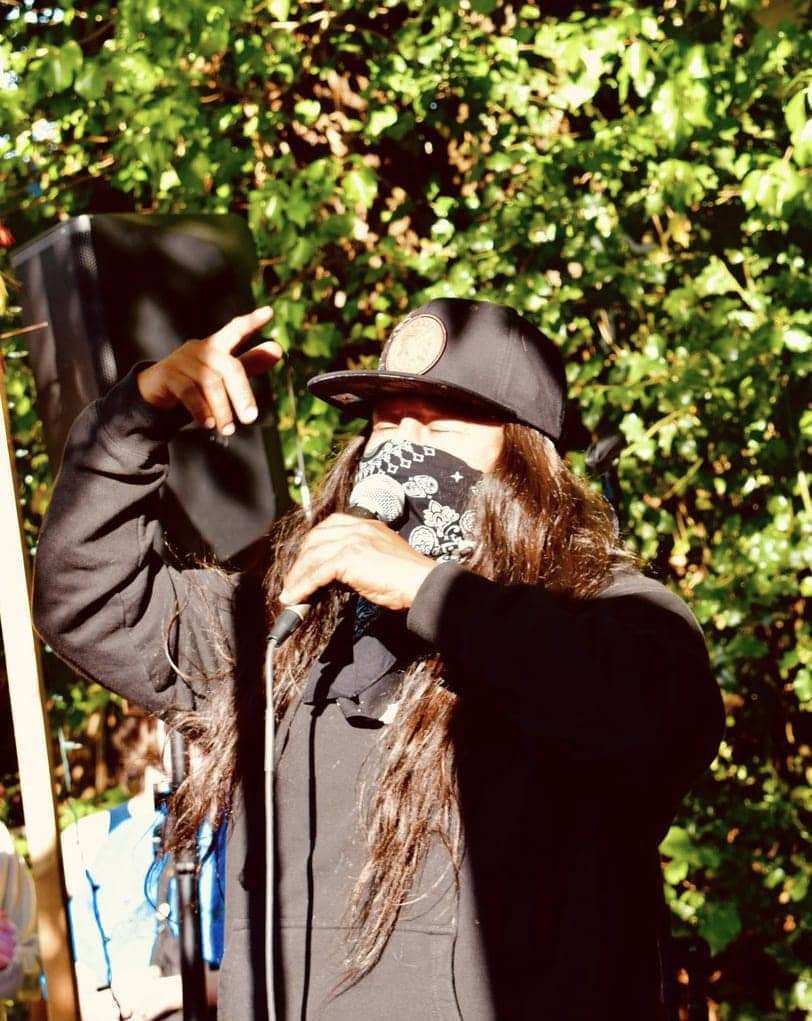
Bellingham, a “bucolic” town like so many other settler towns in occupied Turtle Island – washed and erased of its histories of First Nations genocide, removal, murder and terror. Now, it’s occupied, stolen and settled – Lummi, Nooksack, Samish and Semiahmoo territory filled with rich wite people and billed by the tourist extractive industry as one of the “best places to play” and “best place to retire” for its beautiful landscapes and multiple waterways and close proximity to rich people’s sports industries like skiing, snowboarding, hiking etc.
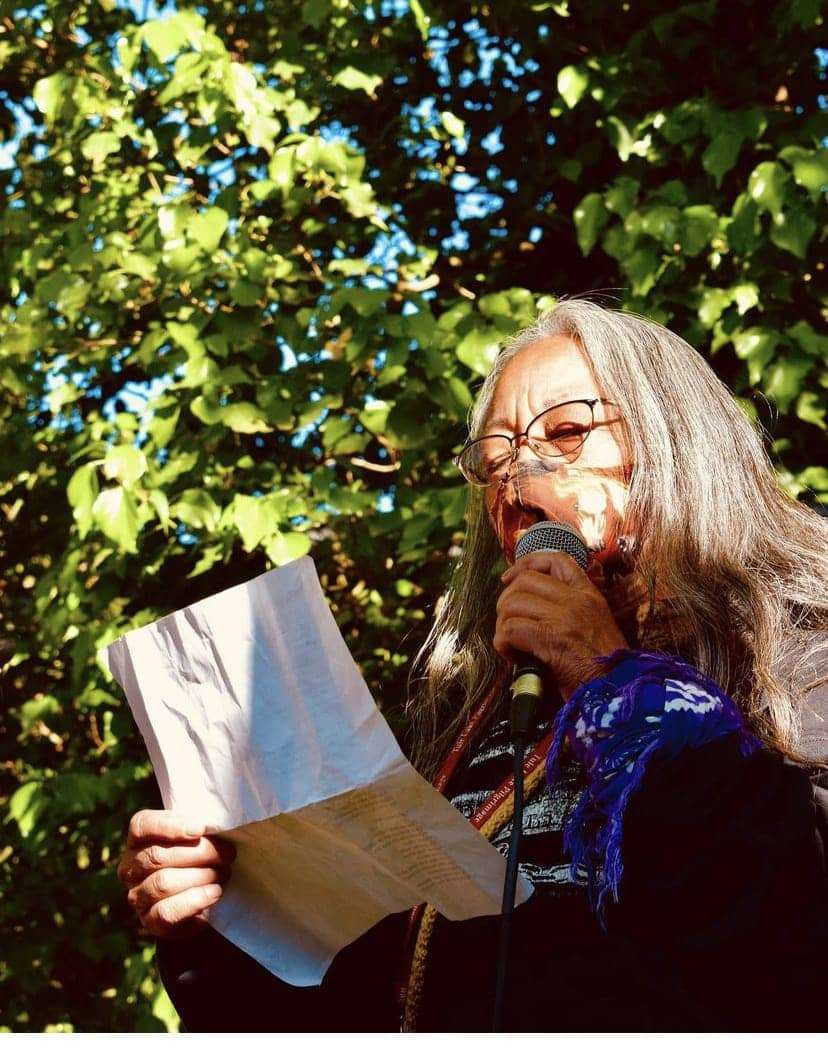
What is barely, if ever, spoken about in tour guides and chambers of krapitalist commerce is the violent and brutal genocide known as boarding schools that existed all across Klanada and the United Snakes – many of them in Bellingham and surrounding counties.
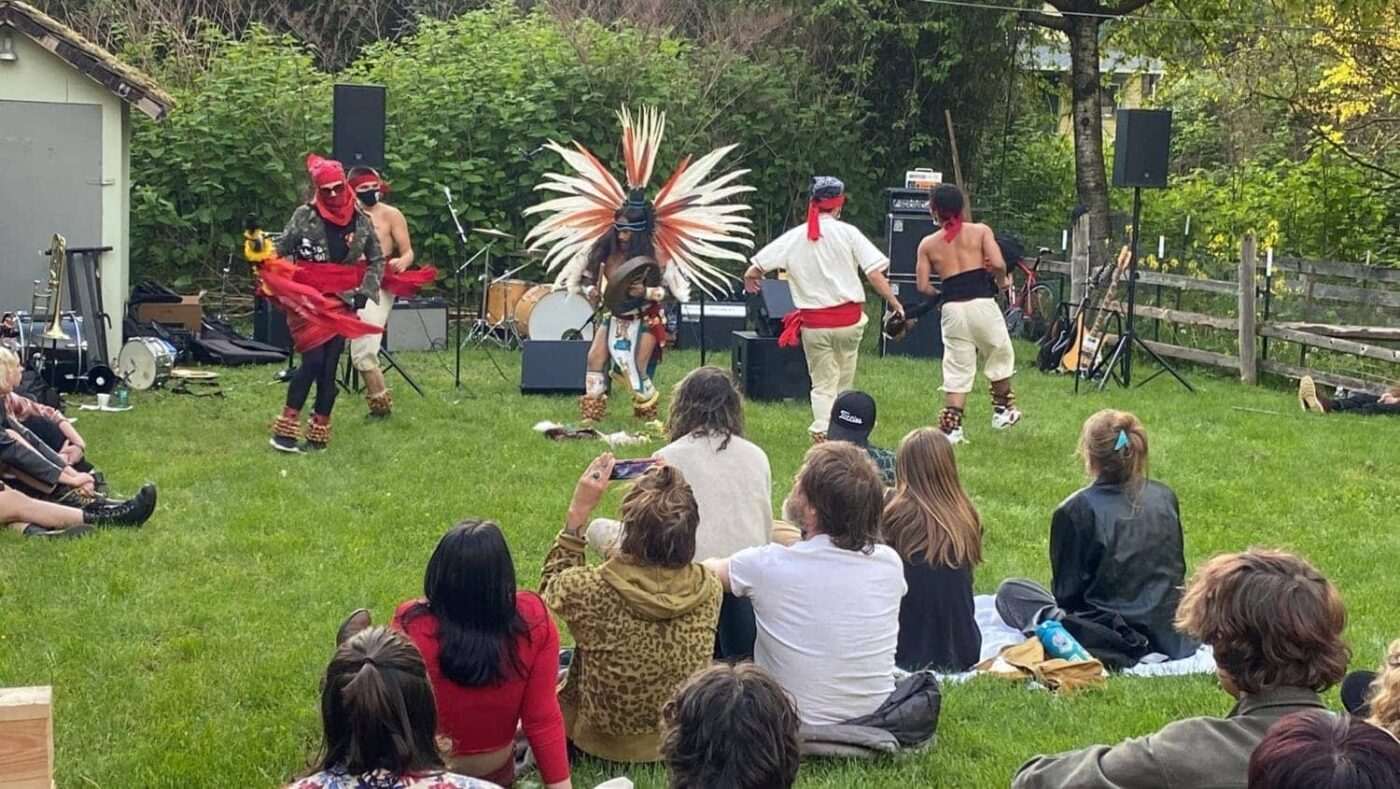
And all the fake treaties, massive colonial terror of women and children, the subsequent land theft and the enslavement and torture of children like Louis and Solis and so many more who would try to run away from the dangerous abusive “schools” filled with pedophiles and predators known as missionaries, charged with “killing the Indian and saving the man.”
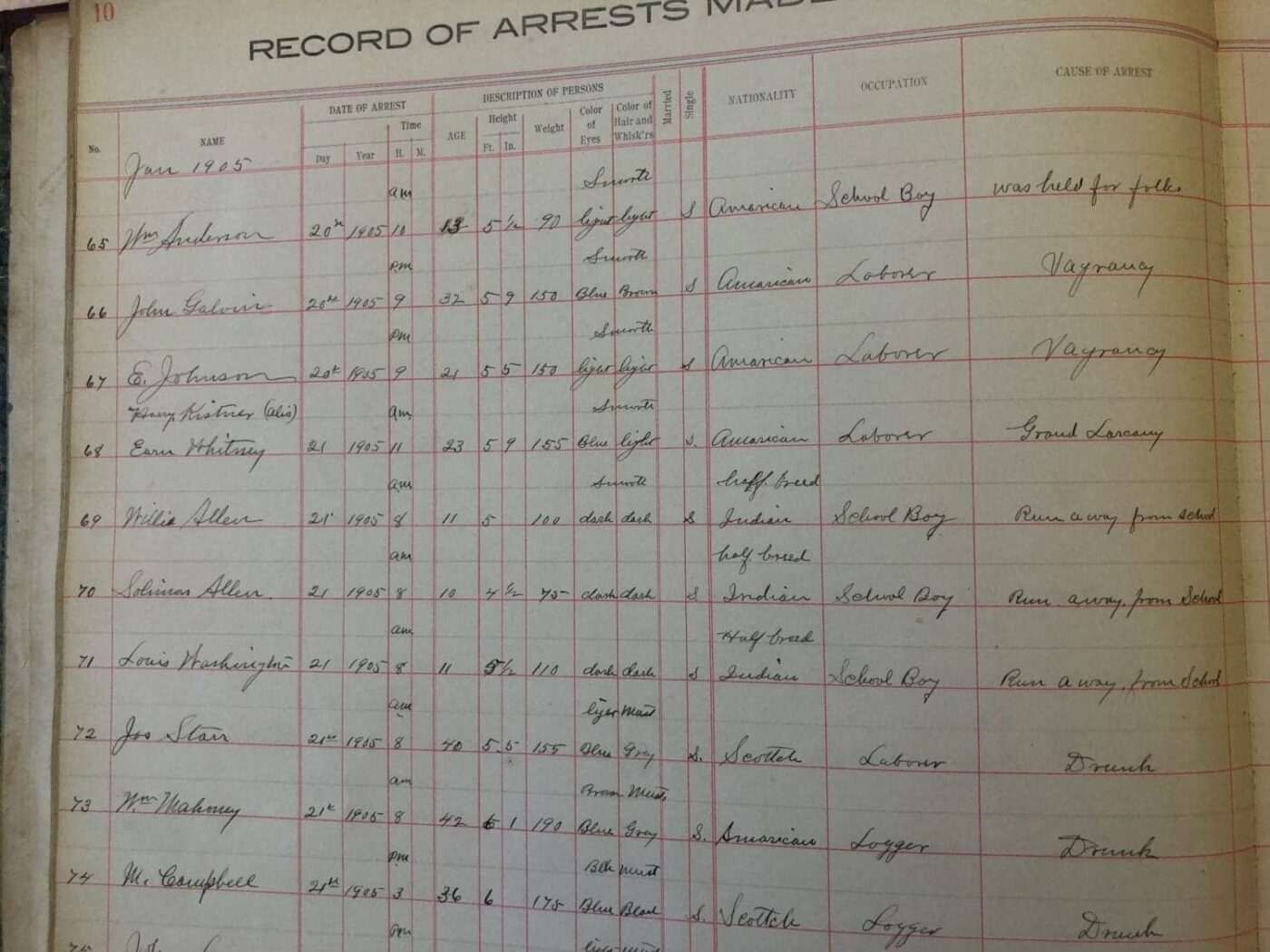
For five consecutive generations, from roughly 1880-1980, native children across the US were taken from their families and sent to residential schools.
More unspoken herstory
In addition to the brutality of boarding schools was the violence against all peoples of color trying to live and work, much less survive in this town. In 1907, a mob of 500 wite settlers beat, terrorized and kidnapped over 200 South Asian workers to “scare” them out of town, which, in addition to the ongoing and brutal attacks on Chinese and Japanese migrants, fueled the codification of a multitude of anti-Asian legislations.
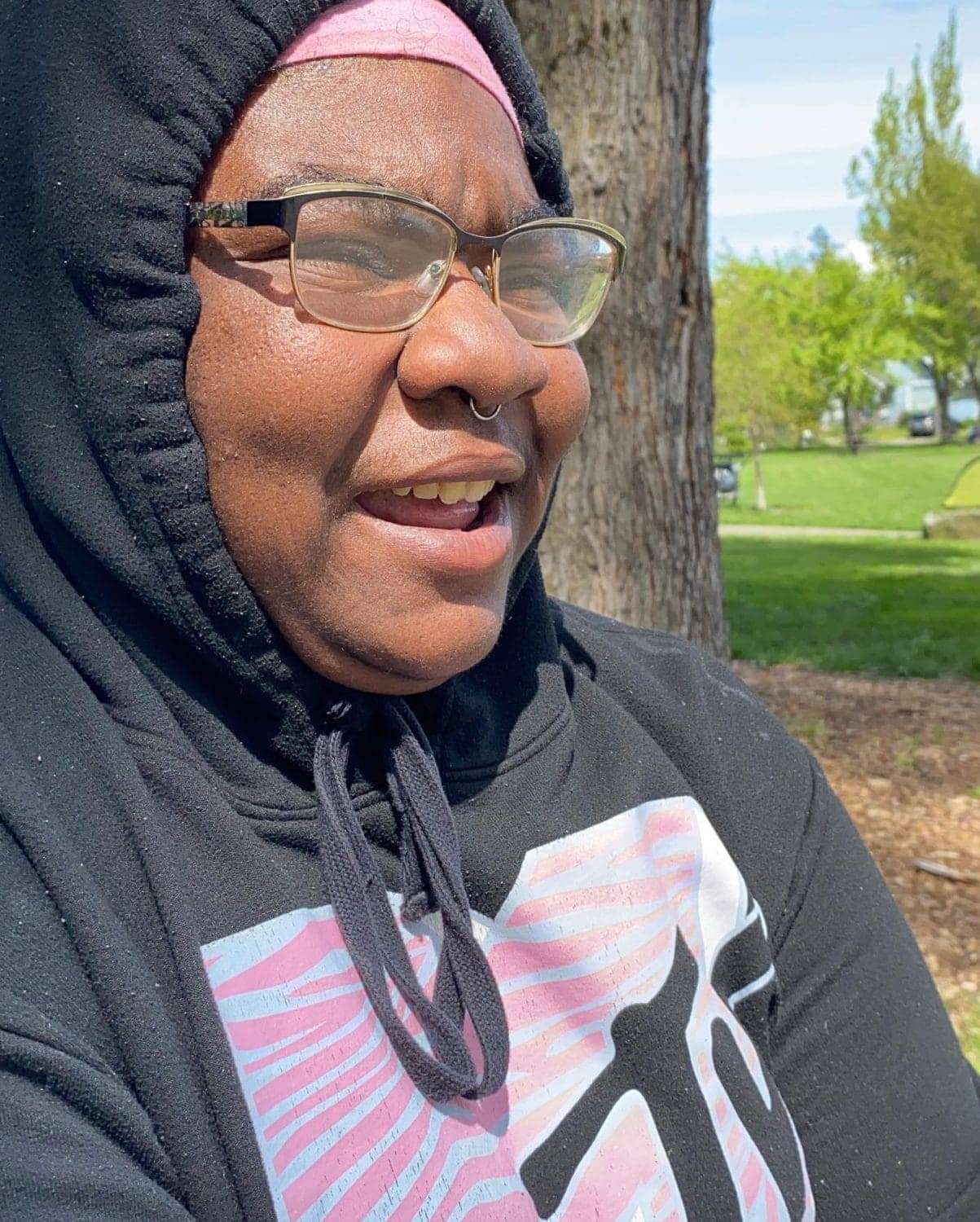
The implicit and explicit approval and enabling of slavery was in following the Dred Scott decision that said descendents of slaves could not be citizens of the United Snakes.
It is into this racist, stolen herstory that we humble, poor, houseless, Black, Brown, disabled and Indigenous peoples from POOR Magazine and Homefulness walk into. Moving in prayer to ancestors and Mama Earth always and lifting up voices of houseless, disabled poor people – always intentionally silenced – and sharing the medicine of radical redistribution, community Reparations and Homefulness with fellow poor and houseless youth and elders so they can build their own self-determined solutions to homelessness.
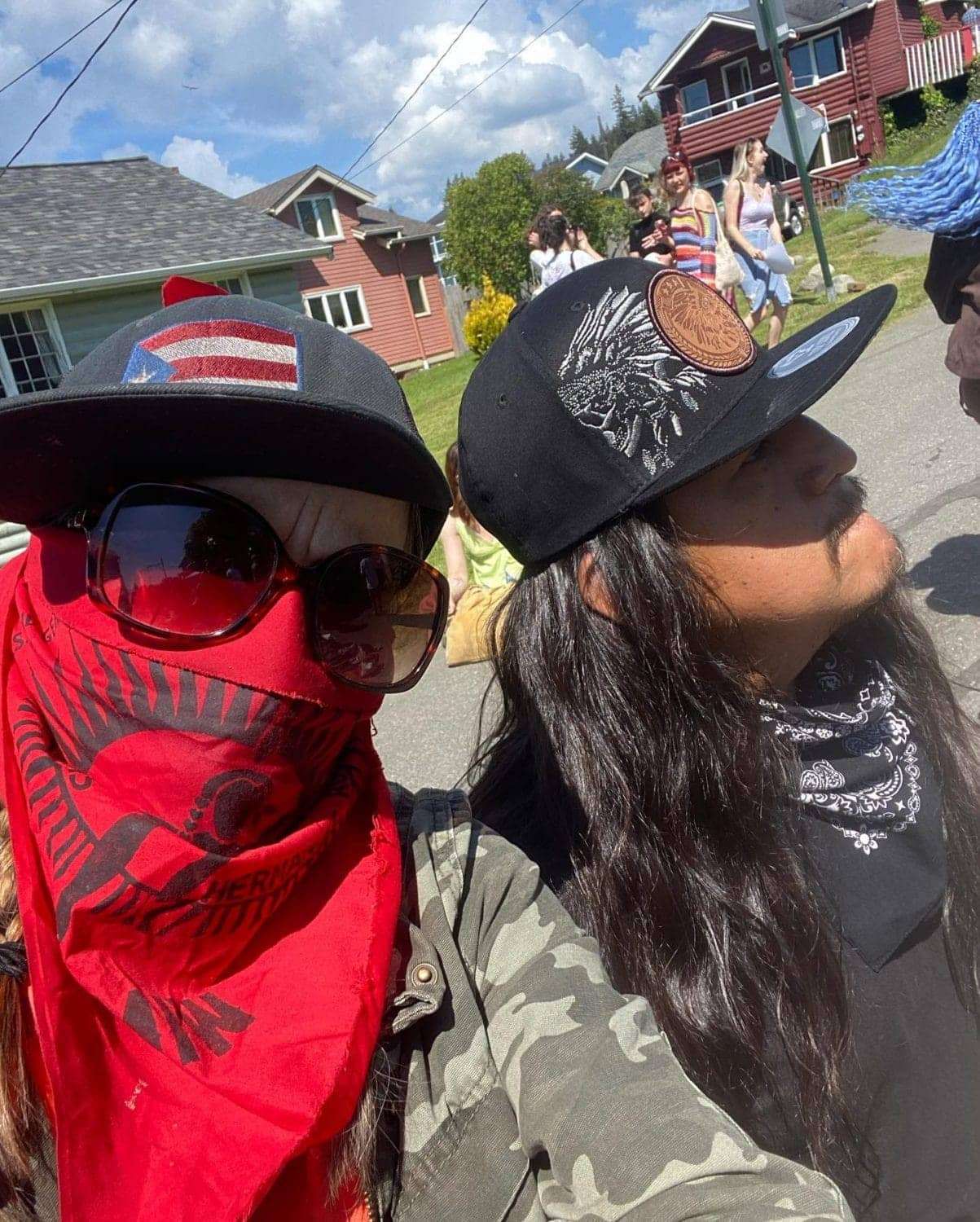
“Police have moved us multiple times,” said Autumn, one of the powerful roofless radio reporters and houseless survivors of a campaign to sweep and harass every houseless person out of Bellingham, one of the many reasons we were invited up to to so-called Bellingham, with its bloody racist herstory to help poverty skolaz up here launch a Homefulness.
“Hi, my name is Polly, I am from the Lummi Nation.” In 2021 when we were first invited up and we did a WeSearch investigation – poor people-led research – our terrifying findings confirmed the sick violence of settler genocide, with over 60% of the houseless population getting swept, holding on by a thread, struggling with addiction, homelessness and poverty in so-called Bellingham and nearby towns where the first people of this land were originally stolen from.
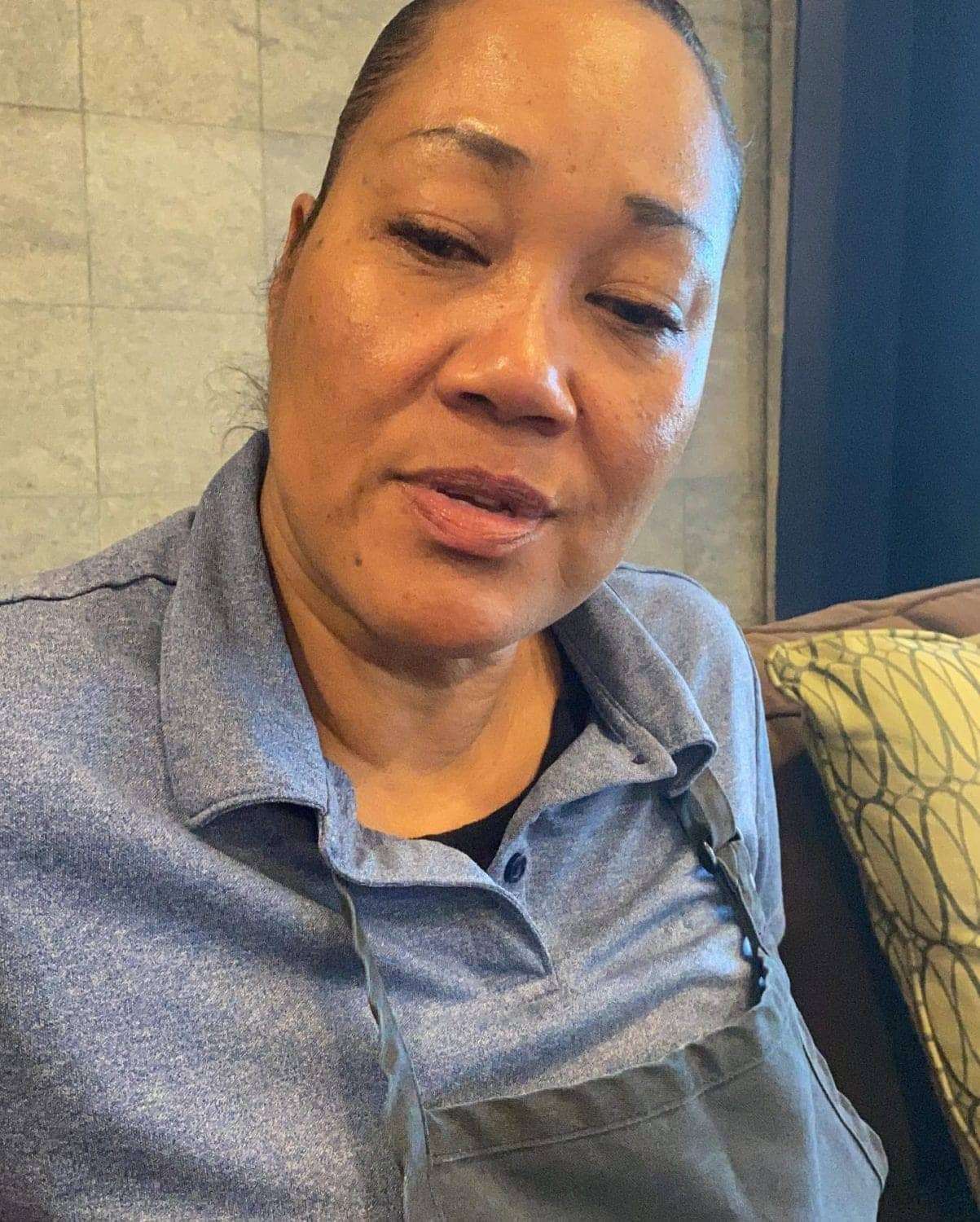
“They are closing the only warming shelter in the snow,” shouted Sin, formerly houseless poverty skola, resident of Bellingham, mother of two, POOR Magazine reporter and singer, in one of our poverty skola writing workshops. “It’s so much violence.”
“I struggled with mental illness and drug addiction. I am now sober, writing poetry and getting things done,” said Kaiyah, a houseless youth poverty skola and newest member of the Po’ Poets Project, who came to our first Po’ Poets Workshop at a youth drop-in center in so-called Bellingham, Wash.
There is no compassion in krapitalism
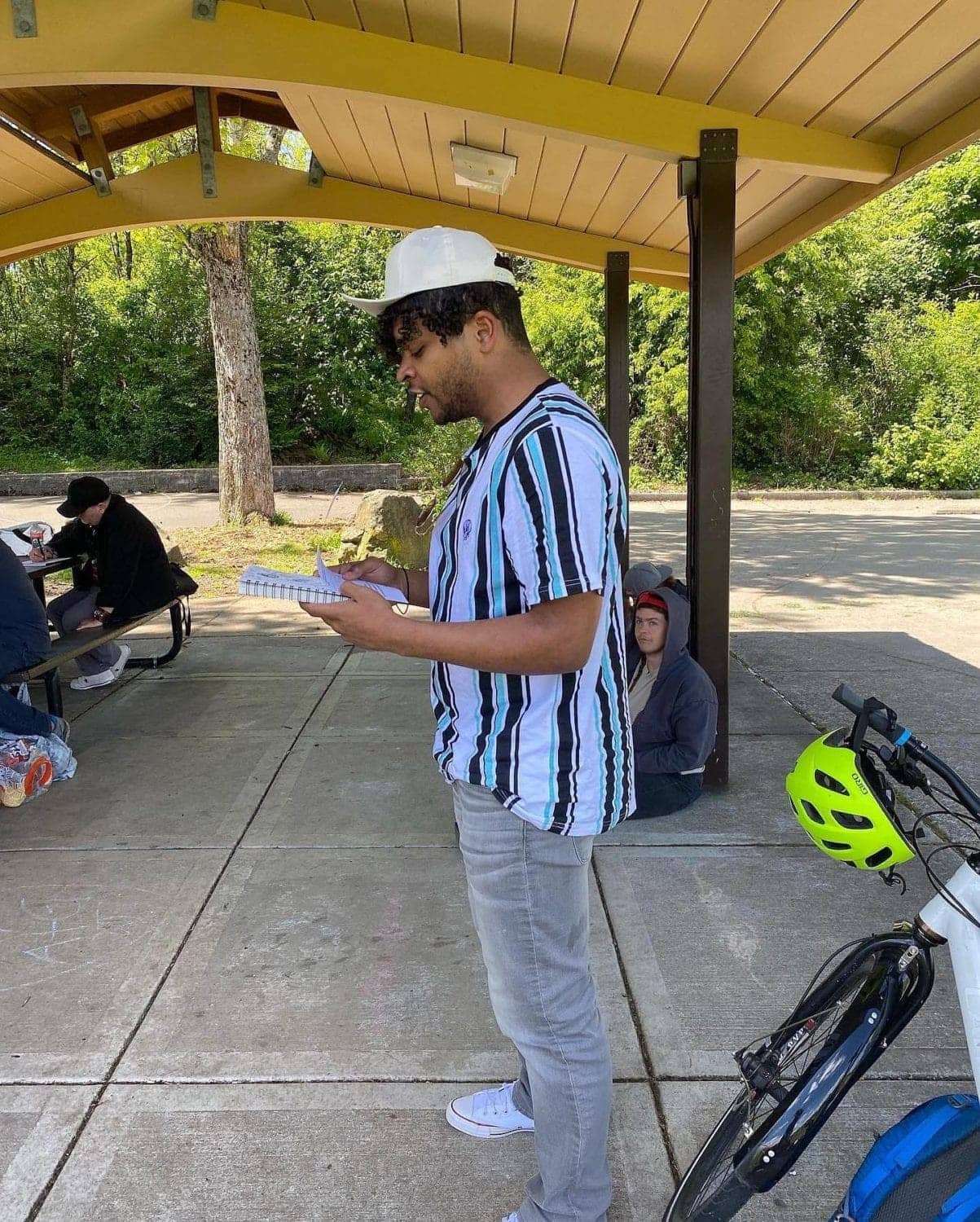
In a place known by colonizers for “the best place to play,” in the powdery snow covered mountains near the Klanada border, as people drop thousands of dollars a day on a ski trip, how would there be space for compassion in krapitalism.
On stolen land, built with stolen lives and stolen resources, how is there any room for the people who were removed so you could be there? There has never been any room in the settler colonial terror myth called the “American Dream” for any of us they stepped on to build it.
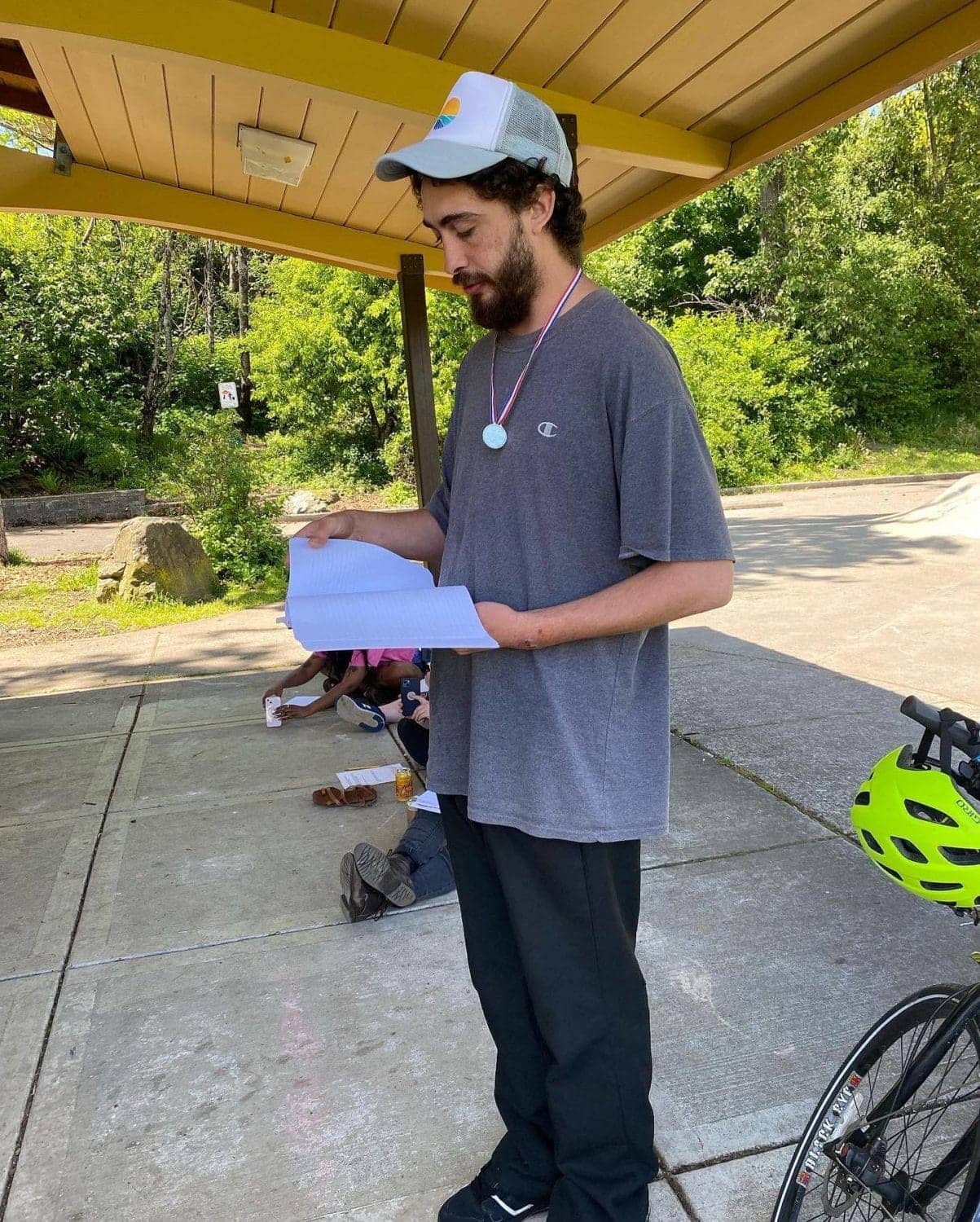
“Nation-wide, half of the children did not survive the experience, and many of those who did were left permanently scarred. The resulting alcoholism and suicide, and the transmission of trauma to their own children, has led to social disintegration with results that have been described as genocidal (Ward, 2008). The impacts of this intergenerational trauma, along with the broader impact of colonization, are ongoing,” states the “Bellingham Racial History Timeline.”
The resulting genocide of the residential (school) terror system, the endless and violent sweeps, structural wite supremacist violence, ongoing and violent gentrification, displacement and eviction can’t begin to be repaired with mere apologies, corporate housing developments, about us without us politricks or settler lies.
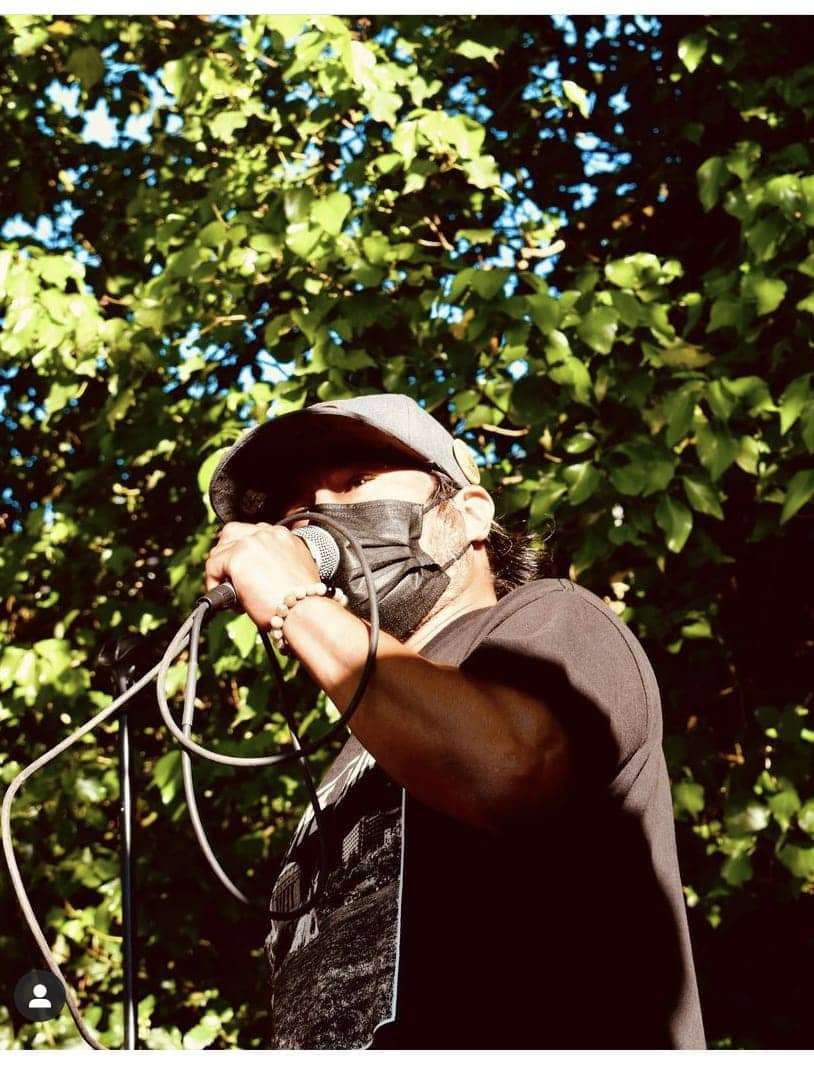
This is ancestral trauma. This is causation for addiction, incarceration, poverty and homelessness.This is murder. This is ongoing colonial terror. This can only begin to be healed with settler reparations, unsold Mama Earth, Land Back, multiple and real commitments and truth commissions for generations of time.
All the beautiful places settlers steal, and all the people who had to die to make their vacation homes real.
Buck up, love up, group up, family – we have just begun unselling, praying, bringing, teaching, sharing, interdependence and loving Homefulness Bellingham into life.
To see some of the powerful houseless youth and elder poets work from the Po’ Poets/RoofLESS Radio Street Writing Workshop, go to @PoorNewsNetwork on Youtube. To Listen to this and other PoemCasts from a poverty skola, find them on Spotify, iTunes or iHeart apps.
Please check out the cornucopia of stories from Bellingham residents online at www.sfbayview.com.
Lisa “Tiny” Gray-Garcia, aka “povertyskola,” is a poet, teacher and the formerly houseless, incarcerated daughter of Dee and mama of Tiburcio and author of “Criminal of Poverty: Growing Up Homeless in America” and “Poverty Scholarship: Poor People-led Theory, Art, Words and Tears Across Mama Earth” and co-founder of Homefulness, a homeless people’s solution to homelessness. Reach her at www.lisatinygraygarcia.com or @povertyskola on Twitter.





